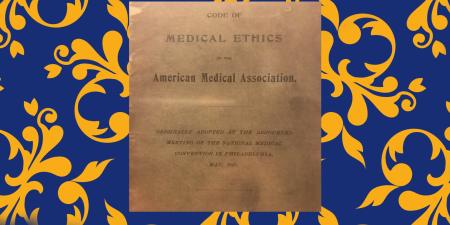Abstract
This comic considers how patients can work to use the right vocabulary to help their physicians help them, since patients suffer when physicians fail to properly diagnose and intervene on their ailments. This comic also considers how patients can experience performance anxiety after what might be months of preparation for a key clinic visit in hopes of getting help.
Figure. Is There a Script for How to Help a Physician Help Me?

Media
Procreate®.
Being a patient in search of a diagnosis—or a physician who can make one—is often riddled with frustration, anger, self-doubt, and performance anxiety. Patients can spend a lot of time preparing for a clinic visit, which can generate as much pressure on a patient as a performance does for an actor. When patients feel they have to help their physicians help them, clinical encounters can be poignant, unrewarding sources of exacerbated suffering of an illness.
This comic captures a patient’s frustration when an ongoing health issue seemingly does not get resolved after the patient sees the physician. Instead of a happy ending, patients can experience cliffhanger after cliffhanger, as physicians struggle to diagnose or treat them. This process lengthens patients’ path to healing and can become another source of stress.
Physicians struggle in this situation, too. There are only so many clinicians, and many patients compete for their time. The current system doesn’t allow physicians to dedicate enough time and energy to properly question patients, perform examinations, and earn their trust. Which resources might enable physicians to meet a patient’s needs in the first, rather than the tenth, appointment?



